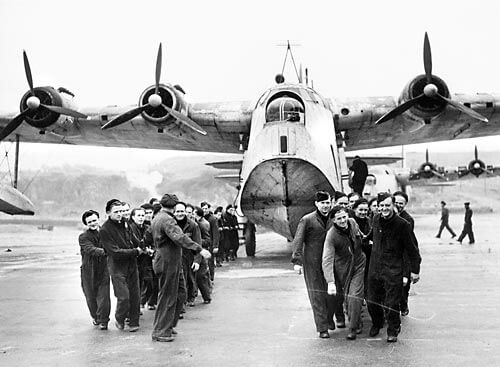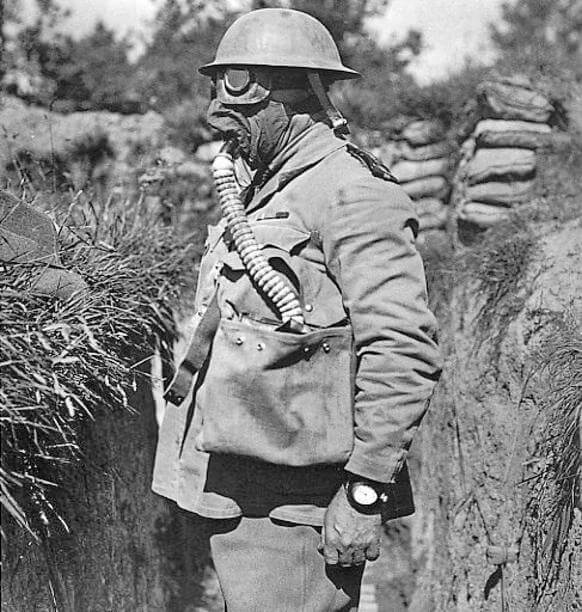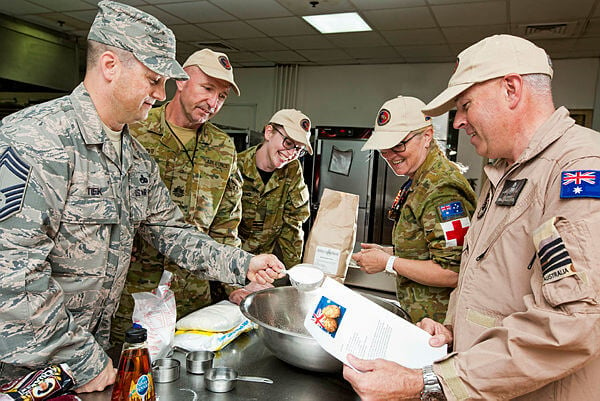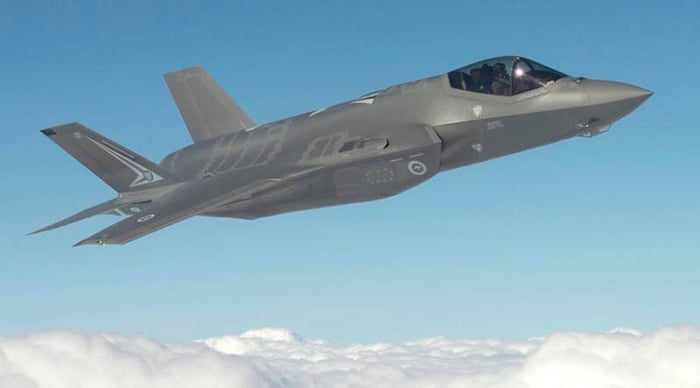
Above the White Cliffs of Dover
My father served as a Flight Fitter/Air Gunner on Sunderland flying boats in England during the Second World War.
He didn't often talk about his experience but, occasionally gave me a snippet of information. For instance, when I asked how he had become such a good cook, he told me he had an affair with a French chef who taught him to cook with a limited range of ingredients, during their times together.
His Squadron, 10 Squadron RAAF had been in England to do conversion training on the Short Sunderland Flying boats which were to be flown back to Australia. When war broke out, his squadron was told to remain in England and help the British protect shipping in the English Channel.
Ten Squadron RAAF was the first group of Australians in combat and the last to leave at the end of the war.
My father spoke of the missions he had flown in the Bay of Biscay and English Channel and the long hours skipping across the top of the sea against the sunrise or sunset looking for the silhouette of German U-Boats that had surfaced for battery charging and air renewal.
The crew with which he had flown despatched two U-Boats to a watery grave and was occasionally the target of German Luftwaffe Messerschmidt's and Junkers 88 aircraft with which they exchanged fire.
Patrols were long in freezing weather. At the evacuation of Dunkirk, he told me they were ferrying soldiers back to England but had to kick the fingers of some and push them from the back doors of the aircraft or they would have been too heavy to take off. He said this was one of the most difficult tasks he had ever had - preventing desperate, fatigued fellow soldiers from boarding an aircraft.
Most notably, he told me that every time he saw the White Cliffs of Dover after a patrol, he knew he had survived another day and was home safe and well.
After two years in England, he was transferred back to Australia and worked at the Flying Boat Repair Depot at Lake Boga in Victoria and at Melville Island in the Northern Territory where they flew Catalina PBY aircraft.
When I visited England for the first time in 2010, I went to Dover and saw the White Cliffs and thought of the young Australian airman who was later to become my father.
Life's fortunes or misfortunes are simply a matter of time and place. I proudly wear his medals with mine on Anzac Day and hope that our fellow Australians will never forget the sacrifice of our war heroes and others who have served.




















